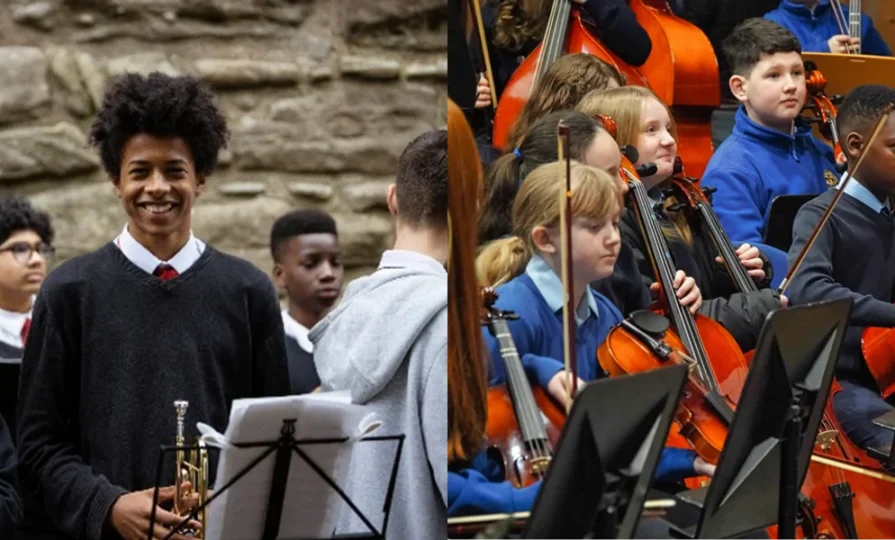Music education ‘vital’ to developing transferable career skills, survey finds
It comes as a recent survey found 48% of respondents used skills gained from music in non-music or STEM professions

Register to get 1 free article
Reveal the article below by registering for our email newsletter.
Want unlimited access? View Plans
Already have an account? Sign in
The Association of British Orchestras has launched a campaign to promote the career benefits of music education, following a survey that found that transferable skills developed through music education are “vital” to developing transferable skills.
Through the #AnOrchestraInEverySchool initiative, the organisation is targeting children and young people preparing to choose GCSE and A-level subjects from 2026. The aim is to show that taking part in live music can have lasting benefits regardless of career choice.
It comes as a recent survey by Making Music found that learning music helped pupils develop skills in practice and perseverance (89%), focus and concentration (87%) and teamwork and collaboration (85%).
More than three quarters of respondents (76%) said performance and presentation skills developed through music had proved essential in their careers.
The survey showed that 48% of respondents used skills gained from music in non-music or science, technology, engineering and mathematics (STEM) professions, while 28% said music education directly supported their STEM career.
The research also found that 14% of respondents had gone on to work in healthcare and 20% in education, with other common careers in financial services, medicine, emergency services and religion.
Respondents highlighted the benefits of access to live music, describing it as “a more rounded human experience” that helps with “cognition, social skills and teamwork, physical awareness and proprioception”.
Music remained an active part of many respondents’ lives, with 79% playing in an ensemble, orchestra or band, 72% attending concerts and 78% listening to music at home. Many said that access to live music contributed to a positive work-life balance.
In terms of qualifications, 37% studied music to A-level or equivalent, while 32% studied the subject at secondary school without formal assessment. Just 2% had access to live music only during primary school.
Sophie Lewis, chair of the Association of British Orchestras, says: “There are numerous benefits to having access to live music making experiences from a young age, whether that is academic achievements, developing confidence, creativity and improvements to mental and physical wellbeing.
“We know there is significant social and economic value to offering music education in schools – the skills developed benefit not only for the UK music industry but for all industries.”
She added: “The Making Music data shows that live music making in all its forms develops a range of skills that can be utilised in any career path – as the data shows, professions range from a cardiovascular surgeon or a software engineer to a police officer or train driver.
“It is vital that children and young people have the opportunity to consider music education and for schools to provide access to necessary resources for the development of future generations. We look forward to the forthcoming Curriculum and Assessment Review and hope to see recommendations for a change to accountability measures and to assessment, and a mandatory entitlement to studying music.”

